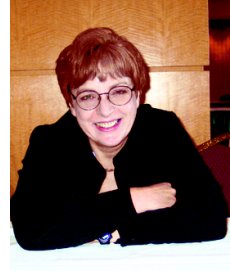Excerpts from the interview:
“My sister turned me on to science fiction. I had run through all the science books in our town's very small library, so she said, 'Here, read this! It's got science in it.' It was Podkayne of Mars by Heinlein. Afterward I read every science fiction book I could get my hands on. My sister was older, she was smarter (for a while), and I think she needed a pal, so she 'invented' me. I sure am grateful! My first convention was Noreascon in 1980. It had a writers' workshop run by Barry B. Longyear, and my sister (who had just found out about these conventions) said, 'Gee, we should go.' I submitted a story, and Barry said, 'Send this to Asimov's.' I did, and they bought it! So there you go. I have a definite debt to him for that, and he was an excellent teacher in that workshop too.”
*
“I had always written and always been interested in writing even while I was trying to make it as a folksinger, so it's not like writing came out of the blue. In turning from folk music to science fiction, I just went from one ghettoized art form to another. I couldn't make it as a famous folksinger, so now I'm a midlist writer! My first book was The Steerswoman in 1989. It started assembling itself from pieces of ideas that I had played with for other stories.
 “The idea of technology disguised as magic is certainly not original to me in any way, but it's how you play it out that counts. The technology in the books is quite low -- if you look closely, it doesn't even hold up as medieval. There are clues pretty early on that this is not the past, though non-SF/fantasy readers tend not to pick them up as quickly. If it's fantasy, it doesn't necessarily have to be in the past....
“The idea of technology disguised as magic is certainly not original to me in any way, but it's how you play it out that counts. The technology in the books is quite low -- if you look closely, it doesn't even hold up as medieval. There are clues pretty early on that this is not the past, though non-SF/fantasy readers tend not to pick them up as quickly. If it's fantasy, it doesn't necessarily have to be in the past....
“In The Steerswoman, I went out of my way to use every fantasy trope I possibly could, and try and twist it around 180 degrees. That drove a lot of that first book. I wasn't trying to do it in a satirical or putdown way, but just to see what else you could get out of it. Like my character Willem, standard 14-year-old boy with a talent for magic going off to find his destiny -- but his particular talent is a working knowledge of explosives. The classic barbarian-warrior sidekick turns out to be female (which is no longer a twist of a cliché these days, but was when I wrote it).”
*
 “At the moment, I plan to write seven more books in the series and then the prequel, though my editor wants me to cut that down! But I swear I do have other things to write. There are a bunch of shorter works I'm dying to get to, but with not having enough time to get to the series at this point in my life, I can't free up time for them. There's at least one fantasy story that's going to involve music (the blues and Robert Johnson), and I also want to get into some real nuts-and-bolts hard science fiction. They say that every writer puts him- or herself into the books. My advice is 'Go ahead and do that, but don't do it for a seven-book series!'.”
“At the moment, I plan to write seven more books in the series and then the prequel, though my editor wants me to cut that down! But I swear I do have other things to write. There are a bunch of shorter works I'm dying to get to, but with not having enough time to get to the series at this point in my life, I can't free up time for them. There's at least one fantasy story that's going to involve music (the blues and Robert Johnson), and I also want to get into some real nuts-and-bolts hard science fiction. They say that every writer puts him- or herself into the books. My advice is 'Go ahead and do that, but don't do it for a seven-book series!'.”
*
“People say our lives aren't stories and fiction makes sense out of them, but I think one of the things fiction does is remind us that our lives are stories. The trick is, there are three or four or eight different stories going on simultaneously, overlapping and with other crap happening that is not related to one particular story. So one of the things fiction does is extract one line out of the mess of what's occurring and demonstrate that this line is connected, has a direction, a point. We have to remember that. Fiction gives us a sense of perspective, a sense of purpose. We don't have to turn our lives into stories; we just have to dig out the story that's there as a natural result of living.”



